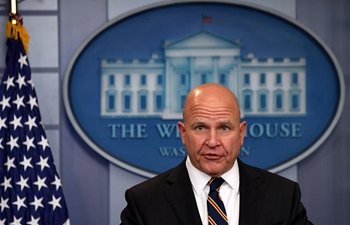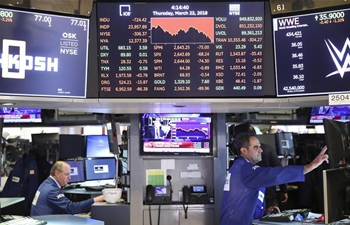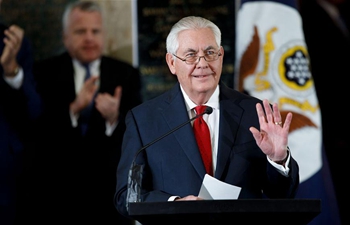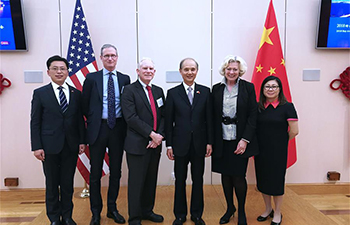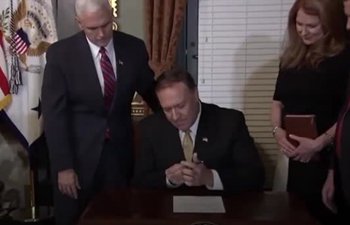by Xinhua writer Wang Haiqing
BEIJING, March 23 (Xinhua) -- In keeping with the growing U.S. fondness for unilateralism, President Donald Trump has announced his remedy for China-U.S. trade problems: a plan to impose tariffs on up to 60 billion U.S. dollars of imports from China and place restrictions on Chinese investments.
The tough measures came at the end of a probe by the Office of the United States Trade Representative, based on Section 301 of the U.S. Trade Act of 1974, a trade tool frequently used by Washington before the World Trade Organization (WTO) came into existence.
The act, which allows the U.S. president to unilaterally impose tariffs, fell largely into disuse after the founding of the WTO in 1995.
The U.S. move to dust off an outdated law and use it against a major trade partner reflects Washington's disregard of WTO rules, the backbone of the current global trading system, which the United States has played a key role in creating.
That has intensified the impression that the United States, the world's only supreme power and a major global rule-maker, is always ready to break the rules it expects others to follow in pursuit of its own selfish interests.
There have been plenty examples of the United States' increasing tendency towards unilateralism since Trump took over the U.S. presidency.
The United States has turned its back on the landmark Paris climate deal, threatened to ditch the Iran nuclear deal, withdraw from the United Nations Educational, Scientific and Cultural Organization and massively reduce its funding for the United Nations, and coerce its trading partners into renegotiations of trade pacts such as the North American Free Trade Agreement, to name a few.
By resorting to unilateralism, Washington is relinquishing its responsibility to maintain the functioning of a rules-based global trading system, and at the same time mars the prospect of a peaceful and more prosperous world.
The United States' planned hefty tariffs on Chinese imports have sent shockwaves through world stock markets and raised widespread fear of a trade war between the world's two largest economies.
Given the volume of U.S.-China trade, and the fact that the economies are more than ever inter-connected, a trade war across the Pacific will wreak havoc across the globe, which would see countries taking unilateral trade actions instead of bringing their disputes to the WTO, thus shaking the very foundation of the global trade system.
Too much is at stake should the United States proceed with its tough-guy approach against China on trade. Beijing understands such vital stakes and never seeks to wage a trade war with Washington. Yet if the Trump administration finally decides to launch a full-blown trade war against China, the Asian country will be forced to fight back.
President Trump once tweeted that "Trade wars are good, and easy to win." Well, he might want to change his mind when one actual conflict is underway.







